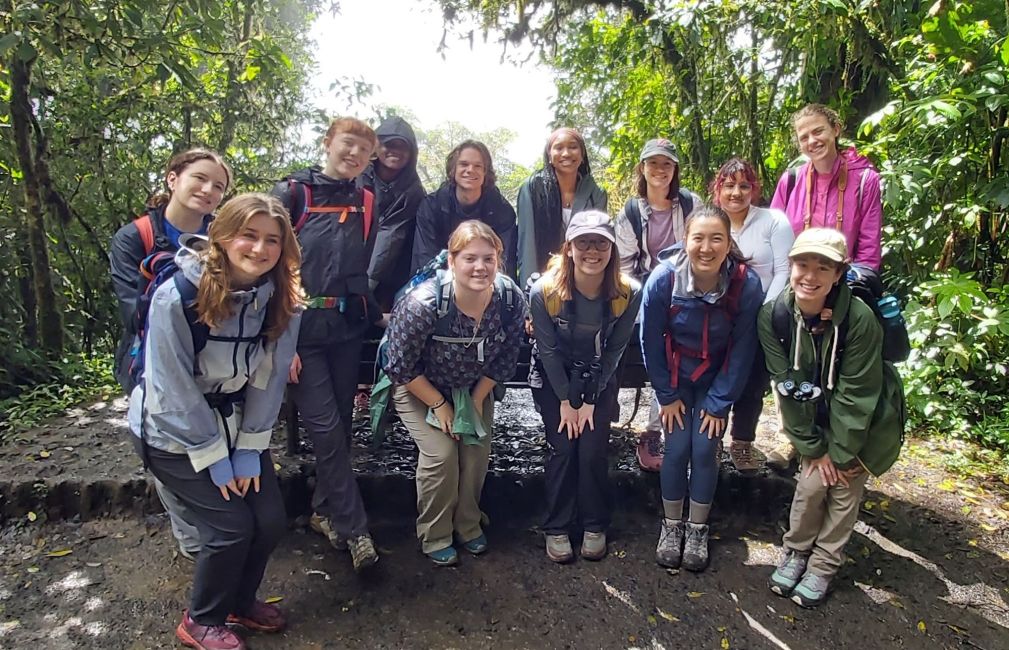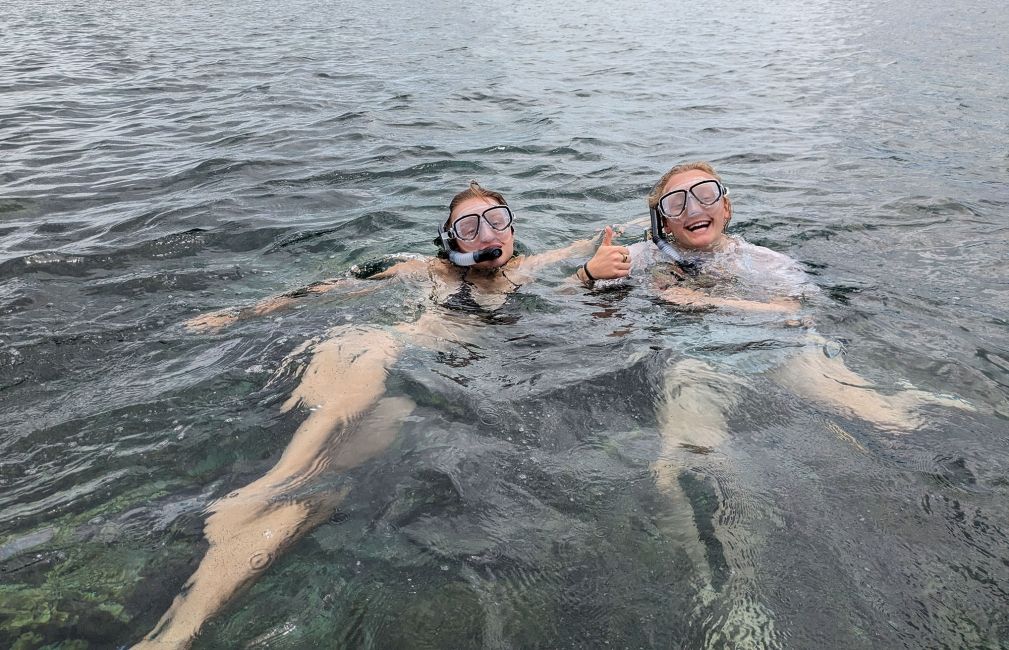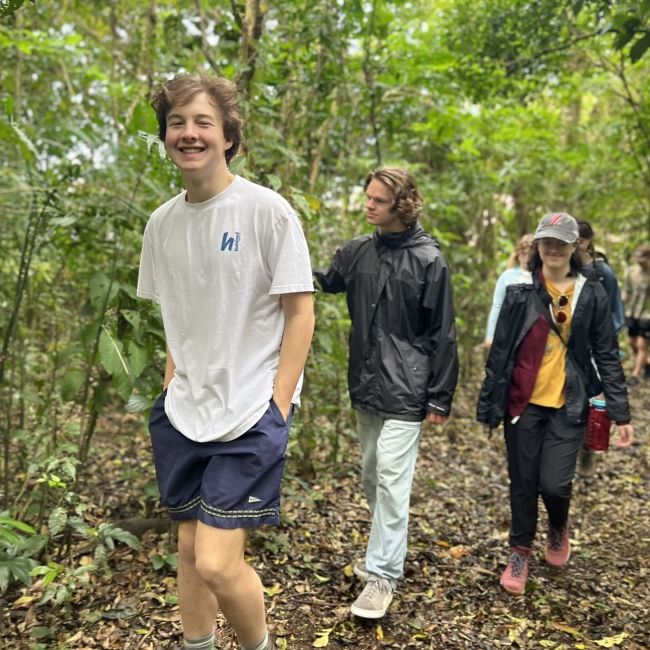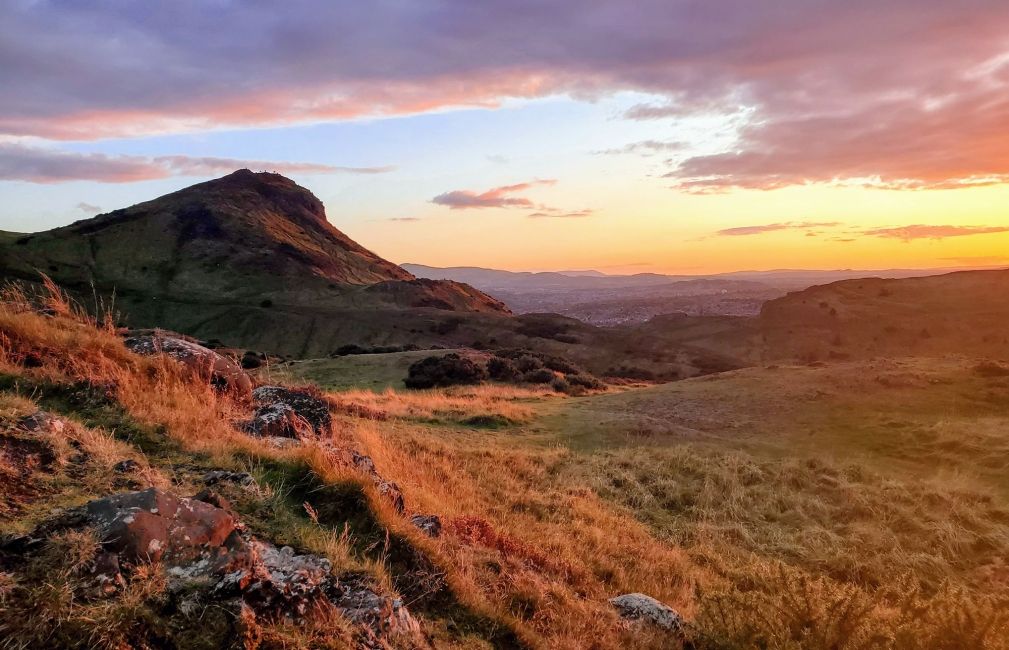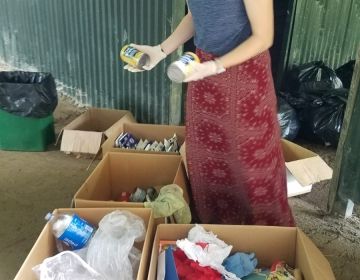Happy Earth Day: Today and Every Day
Happy Earth Day! Every April 22, this global event comes around to remind us how precious our planet is, what sustainable efforts we can make to protect Earth, and that we’re all in the fight to preserve the planet together.
Let’s discuss where Earth Day originated, why it’s important, how we can be eco-conscious in the study abroad community, and some of our top study abroad programs committed to educating students about sustainability.
What is Earth Day?
Earth Day has been celebrated annually on April 22 since 1970, when it was first established by Senator Gaylord Nelson, a U.S. senator, governor, and environmental activist. At the time, the creation of Earth Day was meant to force environmental issues onto the national agenda. And it worked! Ever since, this annual event has been used to raise awareness about the environment, promote sustainability, and advocate for the protection of the planet.
Today, more than one billion people celebrate Earth Day by taking actions like:
- Participating in clean-up events in parks, on beaches, in woodlands, etc.
- Planting trees
- Creating community gardens
- Volunteering for environmental organizations
- Attending workshops focused on environmental issues, sustainability, and conservation
- Joining marches, rallies, and petitions to call for policy changes
To celebrate Earth Day in your local community, see what kinds of efforts are being made that you can join. Or consider creating a new initiative to help promote sustainability on a local scale for global impact!
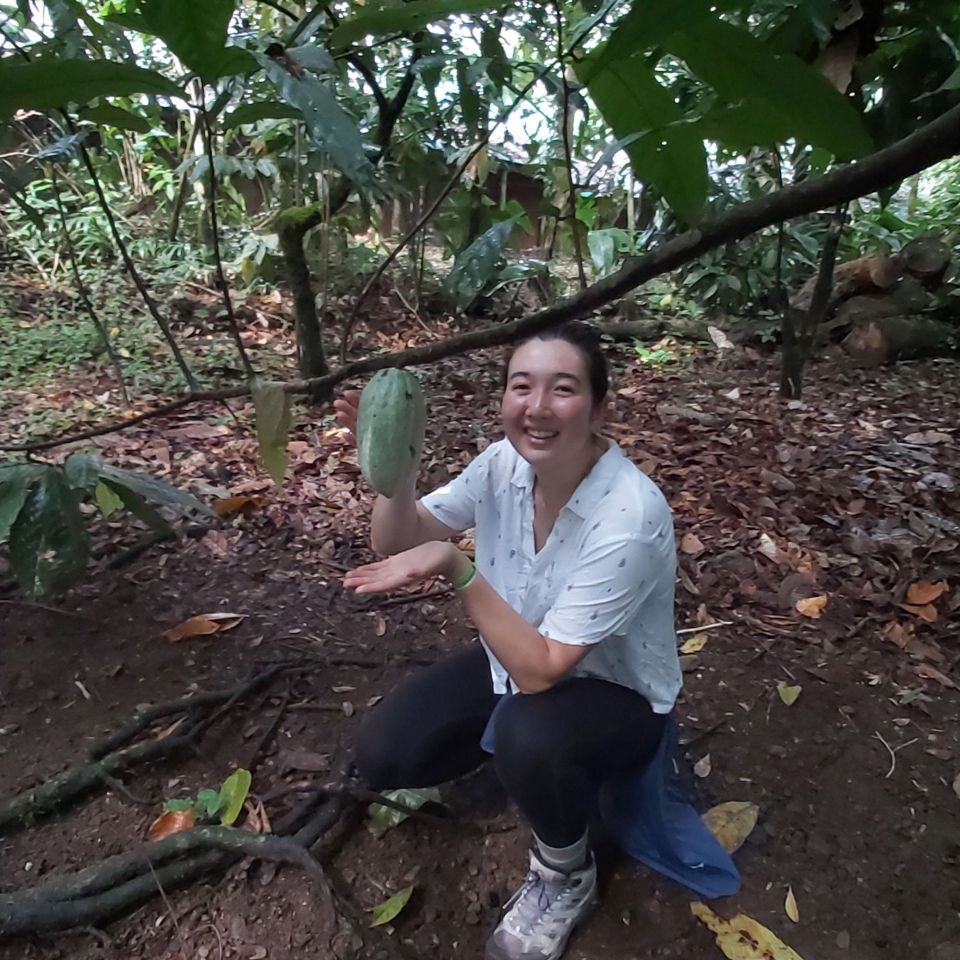
Why is Earth Day Important?
Earth Day is important for many reasons, one of the most notable being that every individual eco-conscious action taken, no matter how small, can contribute to positive change and a healthier planet.
Consider these other top reasons why Earth Day is so critical:
- It is a global call to action to address environmental issues like climate change, deforestation, pollution, habitat destruction, and species extinction
- It is a vital reminder of the fragility and interconnectedness of our planet’s ecosystems
- It offers time for reflection on the impacts of human activities on the environment
- It inspires events, initiatives, and educational programs aimed at fostering a deeper appreciation for nature and promoting responsible stewardship of Earth's resources
Ultimately, Earth Day reminds us that preserving Earth’s natural resources, beauty, and health is not just an option but imperative for the well-being of our planet for generations to come.
10 Ways to Be Eco-Conscious While Studying Abroad
At first thought, studying abroad may seem to work against environmental sustainability, but in actuality there are many ways you can offset your carbon footprint while abroad.
Here are a few ways you can practice sustainability and be eco-conscious in your host country:
- Use Public Transportation: Opt for biking, walking, or utilizing buses or trains instead of relying on rideshare cars or taxis. This not only reduces carbon emissions but also promotes a healthier lifestyle!
- Reduce Energy Consumption: Be mindful of energy usage in your housing accommodation by turning off lights, unplugging electronics when not in use, and adjusting heating and cooling settings to conserve energy.
- Conserve Water: Practice water-saving habits such as taking shorter showers, turning off taps when not in use, and reusing towels to minimize water waste.
- Reduce Waste: Choose reusable water bottles, coffee cups, utensils, and shopping bags instead of disposable ones. Opt for products with minimal packaging and recycle whenever possible.
- Support Local Businesses: Explore local markets, eateries, and shops that prioritize sustainability, fair trade, and environmental responsibility. Purchase locally sourced products and souvenirs to reduce your carbon footprint.
- Embrace Sustainable Eating Habits: Support restaurants and cafés that offer organic, locally sourced, and plant-based food options. Minimize food waste by ordering only what you can consume and bringing reusable containers for leftovers.
- Engage in Community Initiatives: Depending on where you’re studying abroad, participate in environmental volunteering opportunities, beach clean-ups, tree planting events, or community garden projects to contribute positively to your host community and environment.
- Practice Responsible Tourism: Respect local wildlife and ecosystems by following designated pedestrian and hiking trails, avoiding single-use plastics, and refraining from purchasing products made from endangered species or contributing to unethical wildlife tourism.
- Educate Yourself (And Others): Learn about the environmental challenges facing your host country and share your knowledge and experiences with others to adopt eco-conscious behaviors.
- Bring Your Sustainability Practices Home: Take the sustainability efforts your practice abroad back home with you after your program and live a more eco-conscious lifestyle in your local community.
Adopting an eco-conscious mindset and incorporating some (or all) of these sustainability practices will help make a positive impact on the environment. And remember, every individual local action scales up for global impact!
Best 5 Sustainability Study Abroad Programs
CIEE offers many study abroad programs with a sustainability and conservation focus. Consider these top four programs that our students rave about year after year!
Program #1: Sustainability + The Environment (Monteverde)
This program is designed for students from all academic backgrounds who are interested in digging into today’s most pressing environmental issues.
- Length: 16 weeks
- Credit: 16-17 credit hours/24-25.5 quarter hours
- Cost: $19,950
- Eligibility: 2.5 Overall GPA
- Course Highlight: Tropical Conservation Biology and Policy
- Excursion Highlight: Immerse yourself in the steamy jungle of the Lowland Rainforest
Program #2: Ecology + Sustainability (Athens)
Engage with the world's most pressing environmental challenges in a local context. In the classroom, you'll develop your understanding of the ecological, social, economic, and political contexts of environmental sustainability in Athens. Outside the classroom, you will enhance your experience with cross-disciplinary co-curricular and extracurricular activities related to sustainability and the environment.
- Length: 19 weeks
- Credit: 12-15 U.S semester credits/18-22.5 quarter credits
- Eligibility: 2.5 Overall GPA
- Course Highlight: Global Change and The Environment
- Excursion Highlight: Embark on a half-day sea kayak tour in the serene Corinthian Gulf, exploring crystal-clear waters and stunning coastal views
Program #3: Summer Wildlife Ecology + Conservation (Gaborone)
One of Africa’s top-ranked destinations for wildlife, this Botswana study abroad program educates you on animal behavior, ecology, and conservation to preserve African ecosystems and protected areas.
- Length: 8 weeks
- Credit: 10 credit hours/15 quarter hours
- Cost: $8,250
- Eligibility: 2.5 Overall GPA
- Course Highlight: Introduction to Wildlife Resources, Ecology, and Conservation
- Excursion Highlight: Travel to Okavango Delta and engage in face-to-face discussions with villagers on issues of human-wildlife conflict and conservation
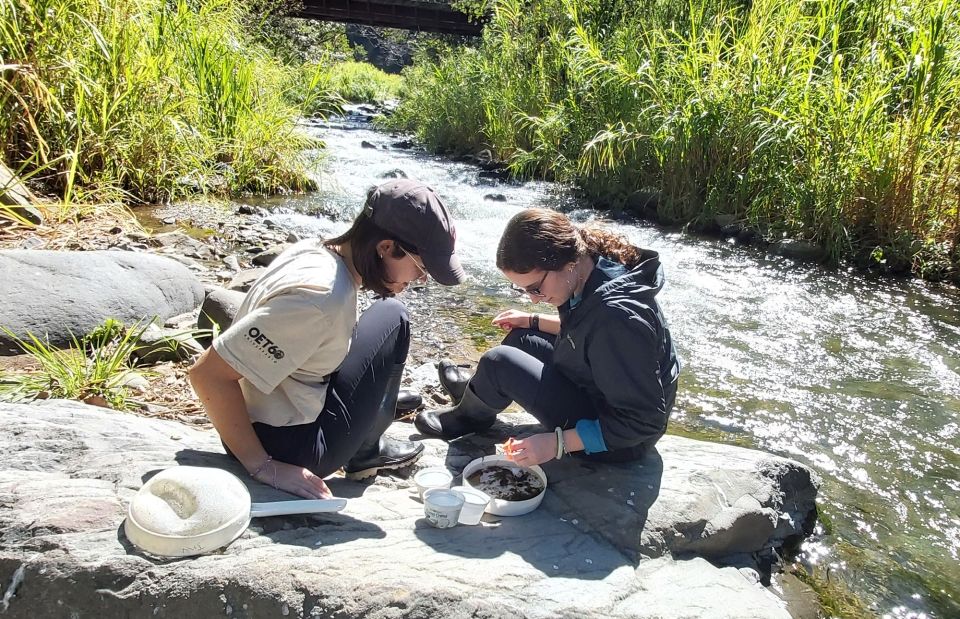
Program #4: Sustainable Smart Cities (São Paulo)
Get an in-depth look at how Brazil's largest city is using innovative urban design solutions to prepare for the future. In class, you'll explore how urban planning, technology, and public policy contribute to sustainability in São Paulo. Outside the classroom, you'll participate in best-in-class excursions like meeting science experts leading solar energy projects.
- Length: 12 weeks
- Credit: 12-14 U.S. semester credits/18-21 quarter credits
- Eligibility: 2.5 Overall GPA
- Course Highlight: Building Sustainable Cities
- Excursion Highlight: Visit a sustainable farm outside São Paulo to learn how agroforestry and regenerative agriculture are transforming food production
Program #5: Summer STEM + Society (Mérida)
This program takes place in Mérida, less than a two-hour drive from biodiverse nature reserves, UNESCO archaeological sites, and historic towns where you’ll study the environment, Mayan culture, history, business, communication, and more.
- Length: 6 weeks
- Credit: 6-7 credit hours/9-10.5 quarter hours
- Cost: $5,450
- Eligibility: 2.5 Overall GPA
- Course Highlight: Mayan History, Culture, and the Environment
- Excursion Highlight: Take a boat ride over pink waters at Ría Celestún, a biosphere reserve where you can explore mangroves, look for crocodiles, and visit enormous concentrations of flamingos
Every Day is Earth Day
Now that you’re armed with knowledge about Earth Day and all the ways you can practice sustainability abroad, you’re ready to get on your way! Treat every day like Earth Day and take your eco-conscious mind global to appreciate Earth’s natural beauty, help preserve and protect our planet, and embrace a new culture.
Ready to take the next step?
Related Posts
Costa Rica vs. Argentina: Which is Better for Study Abroad?
Imagine yourself sipping mate in a bustling Buenos Aires café or lounging peacefully in a hammock overlooking Costa Rica's lush rainforests. These contrasting scenes represent just a glimpse of the... keep reading
Top 10 Study Abroad Volunteer Opportunities with CIEE
Have you ever wondered if you could volunteer abroad? Perhaps you're looking into study abroad programs that provide international volunteer opportunities. If you’re itching to study abroad and truly make... keep reading
Recycling Internship with ADI San Luis
Written by Maya Peske (Cornell College), Internship in Sustainability and the Environment The road from San Luis up to Monteverde is well known by all of the people in the... keep reading
